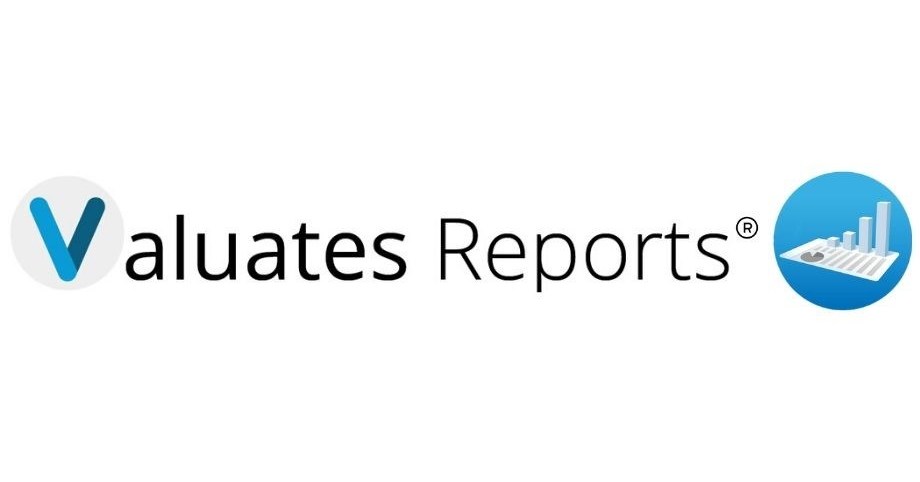World
World-beating British stocks – as picked by professionals

Following three successive years of record outflows from UK equity funds and no end in sight, it feels easy to conclude that the world has given up on British shares. The cumulative effect on confidence of Brexit wrangles, Covid chaos and a mini-Budget calamity provides plenty of reasons why.
However, at odds with this narrative is the fact that the fund managers that really matter (those that are the best in the world at their jobs) are incredibly keen on the prospects of many British companies.
A year ago, financial publisher Citywire began to rate companies based on their popularity with the world’s best investors, who represent roughly the top 3 per cent of 10,000 fund managers monitored. Each month, around 6,000 out of more than 56,000 global listed companies qualify for an “Elite Companies” rating, reflecting a holding by one or more of these elite investors. Only the most popular 10 per cent of the 6,000 companies are awarded a top AAA Elite Companies rating.
What has stood out since the launch of this rating system is the number of AAA-rated British companies. From more than 70 international markets, the UK has consistently ranked third or fourth by number of top-rated stocks. Most months, its tally has only been behind that of the mighty US and fast-growing India.
So, what is attracting the smartest investment professionals from around the world to British companies? And, importantly for investors – not least those eyeing the proposed new £5,000 UK individual savings account (Isa) allowance – what British shares are top managers placing big bets on?
What makes a great British company?
While the 25 London-listed companies that are currently AAA-rated are a diverse bunch, the average financial characteristics of these stocks tell a story of what’s drawing the smart money to home shores.
One thing that leaps out is ‘value’. It has become a bit of a cliché to talk about the UK market being cheap. A lame cliché at that, given the poor performance of the main UK indices over a decade. But the world’s smartest investors clearly see substance in the value argument.
British AAA-rated stocks trade on an average price/earnings (PE) ratio of just 11 times on an unweighted basis, based on their forecast profits over the next 12 months. They’re also valued on a measly 1.4 times sales and boast a bumper average forecast free cash flow yield of 8.7 per cent.
A lot of cash is being returned by these companies, too. This chimes with the reputation of the UK stock market as home to many mature companies.
High cash returns are reflected in an average total shareholder yield of 7.4 per cent over the past 12 months. Total shareholder yield represents dividends paid plus money spent on share buybacks as a percentage of the share price.
While one normally expects low valuations to be the preserve of no-hoper businesses, the quality credentials of top fund managers’ favourite UK companies are not shabby in any way. The average operating margin is 18 per cent, while forecast return on equity (RoE) for the coming 12 months is 24 per cent.
And the general state of balance sheets is also good, with average net debt equivalent to 1.1 times cash profits.
Given the UK market’s reputation for sluggishness, the growth of these British smart-money favourites looks unexpectedly strong, too. Average annualised growth in earnings per share (EPS) over the past five years has been 12.3 per cent, and an annual growth rate of 9.9 per cent is forecast by brokers over the next two 12-month periods.
The top UK picks also boast decent share price momentum. The average 12-month total return from the group of 25 has been 19.5 per cent.
This overview gives a strong impression that for canny investors who know where to look, the UK is something of a have-it-all market: quality, growth, momentum and bumper cash returns at bargain prices.
But to get more insight, we need to look at the companies top investors are placing their biggest and boldest bets on, and find out why they’re so bullish.
Specifically, we’ll explore the case for six UK-listed companies that are world-beaters. The six represent the top picks globally for the world’s best fund managers in their respective sectors: pharmaceuticals, oil & gas, and tobacco.
We’ll also look at two quality plays and two turnaround situations from the 25 British smart-money stars.
WORLD BEATERS
Pharmaceuticals: AstraZeneca and GSK
AstraZeneca (AZN) and GSK (GSK) are the favourite pharmaceutical companies globally with the world’s best fund managers. Their popularity surpasses even sector darlings Novo Nordisk and Eli Lilly.
Astra has consistently spent the past 12 months in the upper echelons of the Elite Companies rankings, often being found among the 10 most popular companies of more than 56,000 monitored globally. GSK, meanwhile, has gained in popularity as top investors have warmed to its slimmed-down structure following the mid-2022 spin-out of consumer business Haleon (HLN).
Astra fans love the company’s sharp focus on research and development (R&D), strong drug franchises and its promising development pipeline, all of which has been nurtured since the appointment of Pascal Soriot as chief executive in 2012.
The elite backers of GSK believe it is heading in a similar direction. Global value investor Sean Peche, who manages the top-performing Ranmore Global Equity fund (IE00B61ZVB30), is one of 21 elite investors backing GSK, and believes the company is in a sweet spot.
“Investing in pharmaceutical companies can be challenging – if they’re too small, they’re risky because they’re dependent on one or two products with a limited R&D budget, and if they’re too large, they often struggle to grow earnings as new drug revenue offsets the decline from drugs going off patent,” says Peche.
“What we like about Glaxo is its well-balanced portfolio with strong market positions in growing franchises such as respiratory and HIV, and an excellent vaccine business with its strongly growing shingles vaccine, Shingrix.
“Glaxo has an experienced management team who haven’t spent frivolously on large acquisitions, yet they have built an attractive drug pipeline with 26 late-stage opportunities. This should ensure continued earnings growth.
“At less than 11 times forward earnings and with a 3.5 per cent dividend yield, we find the company attractively priced.”
Astra’s valuation is not challenging either, at 16.5 times earnings forecasts for the next 12 months. It also boasts better forecast annual growth than GSK over the next two years at 12.8 per cent versus 7.6 per cent. Both companies are highly profitable, with operating margins comfortably over 20 per cent.
Oil & Gas: Shell and BP
Since last April, Shell (SHEL) and BP (BP.) have regularly featured among managers’ 10 most popular companies globally. Here they can be found rubbing shoulders with favourites from the Magnificent Seven such as Microsoft, Alphabet and Apple.
Of particular significance for many of the smart-money backers of the UK’s two big oil companies is both the value on offer and the companies’ increased willingness to return cash to shareholders.
“I own both Shell and BP in the Invesco UK Opportunities Fund (GB00B8N46S41),” says elite investor Martin Walker, head of UK equities at Invesco. “Improved capital discipline among energy sector ‘supermajors’ is helping the companies to deliver strong cash flows, which support consensus expectations in the market for a dividend yield of just under 5 per cent over the next year.”
“We believe dividends are likely to be resilient to a price of oil significantly lower than current levels of $85 to $90. The companies’ capital expenditure plans already factor in increased investment in renewables and in the rollout of electrical vehicle charging in the retail businesses.”
Capital discipline is being encouraged by the energy transition, which represents a huge structural change for the industry that makes investing in new, multi-decade fossil fuel projects fraught with uncertainty.
This has led to a pick-up in share buybacks, too, which looks particularly attractive given how cheap Shell and BP’s shares are.
Shell offers a 12 per cent free cash flow yield based on consensus forecasts for the next 12 months and BP 13.3 per cent. The shares are respectively valued at multiples of 8.9 times forecast earnings and 8.3 times.
“Strong balance sheets also enable both companies to further pay out surplus cash to shareholders via share buybacks, which further concentrates value and supports growth in EPS,” says Walker. “Total shareholder distribution from both companies over the next few years in our view could potentially be well into double digits on an annualised basis.”
Tobacco: BATS and Imperial Brands
If value in the oil and gas sector looks eye catching to the world’s best portfolio managers, it’s nothing compared with the bargain-bin ratings of the UK’s two big tobacco companies, British American Tobacco (BATS) and Imperial Brands (IMB). As with the UK’s top drug makers and oil companies, tobacco is an area where Britain is the leader in the eyes of the world’s best fund managers – admittedly, not an accolade every Brit will feel proud of.
The tobacco sector faces plenty of challenges, as highlighted recently by the UK government’s bill to create a smoke-free generation. But plenty of risk is already priced in. BATS’ forecast free cash flow for the next 12 months is equivalent to an incredible 16.3 per cent of its market capitalisation, while Imperial Brands’ stands at 16.4 per cent.
Given rock-bottom ratings, buybacks look a good option for returning cash, but these companies are currently more focused on dividends. BATS’ forecast dividend yield for the next 12 months is massive at 10.3 per cent, while Imperial Brands, which has shown more appetite for buying its own shares, is expected to yield 8.6 per cent. And while regulation and litigation risk is sky high, this also keeps competition away, which supports high levels of profitability.
QUALITY PLAYS
Diageo and Compass
Caterer Compass (CPG) and drinks company Diageo (DGE) have a reputation as British quality plays. They have also been impacted by the aftermath of the Covid-19 pandemic, but in very different ways.
“Both stocks pass our quantitative screens for quality with track records of high and stable profitability and clean balance sheets,” says Kim Mayer of GMO, the investment manager run by Jeremy Grantham. Mayer is a research analyst working with the managers of the top-performing GMO Quality Investment fund (not typically available to buy on UK platforms), and notes: “Compass has been a holding for over five years while Diageo is a more recent addition.”
In the case of Compass, which provides outsourced catering services around the globe, lockdowns brought home the risk to many companies and organisations of operating their own catering operations. This has given a tailwind to a pre-existing outsourcing trend.
“Compass has a leading market position in the global catering industry,” says Mayer. “It has advantages of scale and efficiency in competing for new outsourcing opportunities and in retaining existing clients.”
Diageo’s post-Covid experience has proved less happy, however. The global inflation spike has seen US customers trade down from its premium drinks brands, while a huge inventory build-up in the Latin American and Caribbean region is being painfully unwound.
Despite this, many of the world’s best investors, including the GMO Quality team, back the company, which owns some of the world’s best alcoholic-drink brands.
“We believe that Diageo represents attractively valued exposure to a resilient durable consumer packaged goods model with attractive assets in good geographies,” says Mayer. “We added the position in 2023 when the stock was trading at lower multiples due to several concerns, including the shape of the US spirits market in the post-Covid recovery.”
While the GMO fund may have bagged the stock on a lower rating, the current forecast price/earnings (PE) ratio of just under 18 times is still within the bottom 5 per cent of the shares’ 10-year valuation range.
TURNAROUND SITUATIONS
EasyJet
EasyJet (EZJ) is a smart-money turnaround favourite with backing from seven of the world’s best fund managers. Their enthusiasm stems from the budget airline group’s considerable cyclicality.
The airline industry is well known for its boom-and-bust cycles. Capacity gets cut during downturns as companies look to rein in investment while others go bust. But when trading rebounds, supply struggles to keep up due to the long lead time on orders for aeroplanes. This provides the industry with periods of high profitability before supply and demand level out then eventually go into reverse.
Many top investors expect the aftermath of the Covid-19 pandemic to exaggerate the upside from the current cycle. The seismic disruption to the industry and its supply chain means both new planes and pilots are proving very hard to come by. Meanwhile, people’s appetite for flying has returned with gusto.
“Aircraft utilisation rates and operating performance have resumed a very strong recovery,” says Matt Fine, the manager of New York-based Third Avenue Value fund, which originally took a stake in easyJet in mid-2022 as the shares approached a 10-year low.
“Two aspects of the investment have evolved in unanticipated ways,” says Fine. “First, because of easyJet’s aircraft and engine configuration, it has largely avoided delays in delivery of new aircraft and the need to remove them from operation for unscheduled service. These disruptions are currently plaguing many airlines. However, those issues do serve to limit industry capacity, which is helpful for strong utilisation and pricing. There are few airlines better positioned to enjoy those benefits.
“Secondly, easyJet’s holiday business has proved more successful than we had given it credit for at the time of our investment. The company’s insight that access to its own inventory of seats is a very valuable strategic asset for a holidays business has proved correct.”
The fact easyJet bolstered its balance sheet during the pandemic with a 2021 rights issue was an important factor underpinning Fine’s original decision to buy during the company’s darkest hours.
While easyJet shares have started to recover, they do not look expensive at 7.6 times forecast earnings for the next 12 months. The rating is near the lowest it has been for the past 10 years, over which period the mid-level PE was 11.9 times. What’s more, brokers have upgraded EPS forecasts for the next 12 months by a heady 80 per cent over the past year.
Unilever
Consumer goods giant Unilever (ULVR) has shot up the Elite Companies rankings since the start of the year.
Top investors are betting a new boss, Hein Schumacher, can reinvigorate the financial performance of the owner of a leading-but-sprawling stable of brands that includes Dove soap, Domestos bleach, Hellmann’s mayonnaise, and Ben and Jerry’s ice cream.
“We have recently added Unilever to the Invesco Global Equity Fund (GB00BJ04GX95) and categorise this company as an ‘improver’, reflecting the fact that [it is] in a turnaround situation,” says elite investor Andrew Hall.
“Unilever has delivered poor shareholder returns for many years, reflecting challenges in finding growth and some questionable capital allocation decisions. We have spent a great deal of time assessing the turnaround plan drawn up by Hein Schumacher and his team and have great respect for Ian Meakins, who has recently become chairman of the group.”
Key elements of Schumacher’s plan include spinning off the ice cream business, which accounts for 13 per cent of revenue; cutting staff and costs; loosening stringent environmental, social and governance (ESG) targets; and focusing on brands with the best growth potential.
“We believe their plan to focus their innovations and marketing behind fewer products as well as streamline their portfolio is likely to yield improved results. We see a much more realistic assessment of the challenges that face the company and a desire to accelerate change,” adds Hall.
The wider market is yet to buy into the turnaround, with the shares valued in the bottom tenth of their 10-year range on a forecast PE of 16 times.
There’s no escaping the fact the UK market has had a torrid decade. Many investors are clearly deciding to throw in the towel. But the average attributes of British AAA-rated Elite Companies illustrate there is plenty on offer for those willing to roll up their sleeves and get stuck in. The world’s best fund managers are doing so with gusto.
The Elite Companies ratings can be accessed at citywire.com/elite-companies










